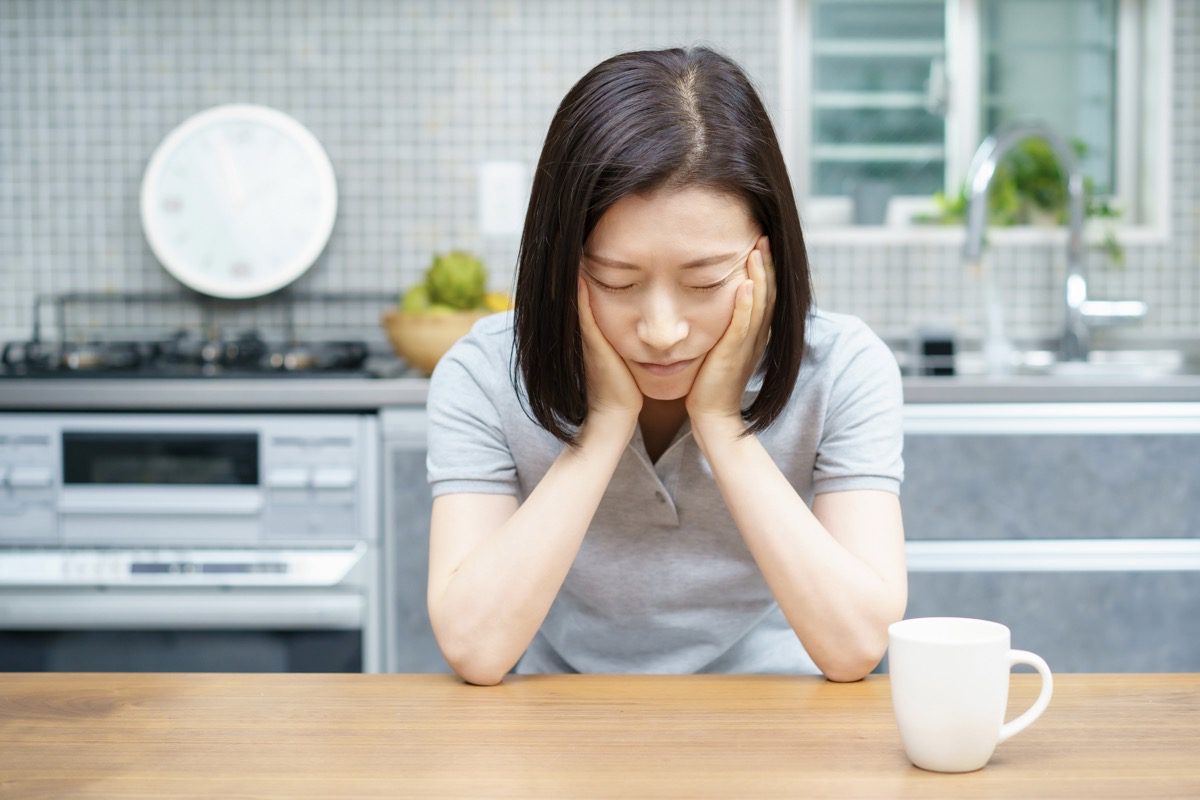Many women in their 40s experience overwhelming, bone-deep physical and mental fatigue. No matter how much you sleep, you always feel exhausted.
Simple tasks require enormous effort. You used to breeze through your days, and now you’re slogging uphill, through mud, wearing a 50kg backpack.
Dull headaches, achy joints and reduced ability to focus often accompany this fatigue. It’s like the 3 pm slump is an all-day dive.
Fatigue is often this is the first symptom of the menopause transition. You might still get regular menstrual cycles with no hot flushes or night sweats.
Constant fatigue is distressing and interferes with the activity of daily living, leaking joy out of life.
So what’s going on, and more importantly, what can you do about it?
Rule out serious health issues
Firstly, excessive fatigue can be a harbinger of serious health issues. It’s advisable to have a general health check with your GP, especially if you have any of the following symptoms.
- Shortness of breath
- Pain in your chest, arm, or upper back
- Irregular, fast, or pounding heartbeats
- Muscle weakness, tiredness in your legs or arms
- Thoughts of harming yourself or others
- Abdominal bloating or pain, nausea, vomiting
- Changes in bowel habits
- Vision changes, loss of smell
- Persistent headaches
Hormonal causes of perimenopause fatigue
Sex hormones
Oestrogen and progesterone are the two most recognised hormones in the perimenopause transition, but declining testosterone also impacts energy levels.
As oestrogen declines, it also impacts the neurotransmitter serotonin. This can impact on quality of sleep and mood.
Progesterone stabilises the hypothalamic pituitary adrenal (HPA) axis. Low progesterone can make you more reactive to stressors which drain energy reserves.
Although women have a smaller amount of testosterone than men, it is essential for energy, mood, red blood cell production and libido. Perimenopause can see a dramatic drop off in this hormone.
Other hormones
Thyroid
Perimenopause can impact thyroid function. The thyroid has a significant role in energy metabolism, and an under-functioning thyroid can leave you feeling lethargic. It’s worthwhile getting your thyroid tested to see if this is contributing to your symptoms.
Adrenal hormones
Excess or prolonged low-grade chronic stressors raise cortisol. Persistently elevated cortisol contributes to cognitive dysfunction, poor quality sleep, insulin dysregulation and weight gain.
Insulin
Declining sex hormones can decrease insulin sensitivity and give rise to energy-draining blood glucose swings. It can also be a vicious cycle of fatigue, reaching for “simple carbs” for an energy boost, contributing to insulin dysregulation. High insulin will also mess with sex hormone production.
Tips to support hormonal health in perimenopause
Aside from taking hormone replacement therapy, there’s no escaping the decline in sex hormones (estrogen, progesterone and testosterone). All these levels naturally reduce in perimenopause when ovulation decreases. But they don’t vanish completely. Small amounts are produced elsewhere in the body. So, the goal is to smooth the transition and support your body in adjusting to this new state.
Nourish yourself
A nutritious diet is the foundation of hormonal balance and overall health. Keep a diet diary for a couple of weeks to notice how certain foods impact your energy. Perimenopause may be a time when you need to tweak and shift how you’ve previously been eating.
- Nutrient-dense with adequate calories for your needs (not too little, not too much)
- Insulin regulating. Ditch foods that spike blood sugar. They may give you a quick fix, but you’ll also get a comedown energy crash. Whole foods, protein and healthy fats with every meal are a better fuelling strategy for sustained energy.
- Include phytoestrogen foods
- Ditch ultra-processed foods
- Limit alcohol
- Limit stimulants like caffeine
Exercise
When you’re feeling exhausted, exerting yourself as little as possible is tempting, but moderate exercise has been shown to boost energy levels. It will also help heart health, balance insulin, and improve mood and sleep.
Short “exercise snacks” of 3 x 10 minutes can be beneficial if the thought of more prolonged activity seems too much.
Conversely, you should go easy on the sustained endurance or high-intensity exercise or alternate these sessions with more leisurely days to allow recovery. Overexercising can raise cortisol.
Address nutrient deficiencies
Single nutrient deficiencies can be due to inadequate intake, absorption, medication side effects or underlying health conditions. Get tested before supplementing.
Iron
Heavy menstrual bleeding can be common throughout the perimenopause transition. This may be due to fibroids or other gynaecological conditions. High blood loss will deplete iron stores. Heavier than usual bleeding requires investigation by a medical professional.
Magnesium and B Vitamins
These are required for energy production and healthy sleep. Chronic stress and diets high in refined carbohydrates and alcohol increase the amount of these nutrients required.
Vitamin D
Insufficient Vitamin D can decrease the function of your mitochondria – your cellular battery. Symptoms can include fatigue with nonspecific muscle weakness.
Sleep
High-quality sleep is essential for reducing fatigue. In perimenopause, sleep can be disrupted by hot flushes and night sweats. Women can also be at an increased risk of developing obstructive sleep apnoea (OSA) due to lower levels of progesterone affecting the tone of the throat muscles. It can also be a time when restless leg syndrome develops.
Tips to support healthy perimenopause sleep
- Set a regular sleep schedule and implement sleep hygiene practices.
- Ensure the room is cool enough, and you can easily add or remove layers of bedding.
- Reduce hot flushes and night sweats.
- If you are frequently snoring or gasping for air, get assessed for OSA.
Take a holistic approach to perimenopause fatigue
Addressing fatigue in perimenopause is usually not as simple as adjusting one thing or taking one supplement/herb. It requires a holistic overview and might need changing a few areas to get yourself back in balance and thriving in this new stage of life.
If you’d like more personalised help, I work one to one with women navigating the perimenopause transition. You can see me in person in my Brisbane clinic or online via Telehealth.
I can only work with clients in Australia due to insurance restrictions.
Here are more articles you might also enjoy.
Turn down the heat – Five natural ways to tame hot flushes.
What herbs are good for menopause?

Need help with your perimenopause transition?
Norelle Hentschel is an experienced naturopath with a clinic in Stones Corner, Brisbane and Telehealth consults Australia wide. She has supported many women navigate the perimenopause transition.
Want more articles like this?
Receive a monthly digest of natural health information to help you become “health” sufficient!
PS. Your inbox real estate is precious, and we will never annoy you with sales pitches or share your details with anyone else. One email a month — that’s it.


